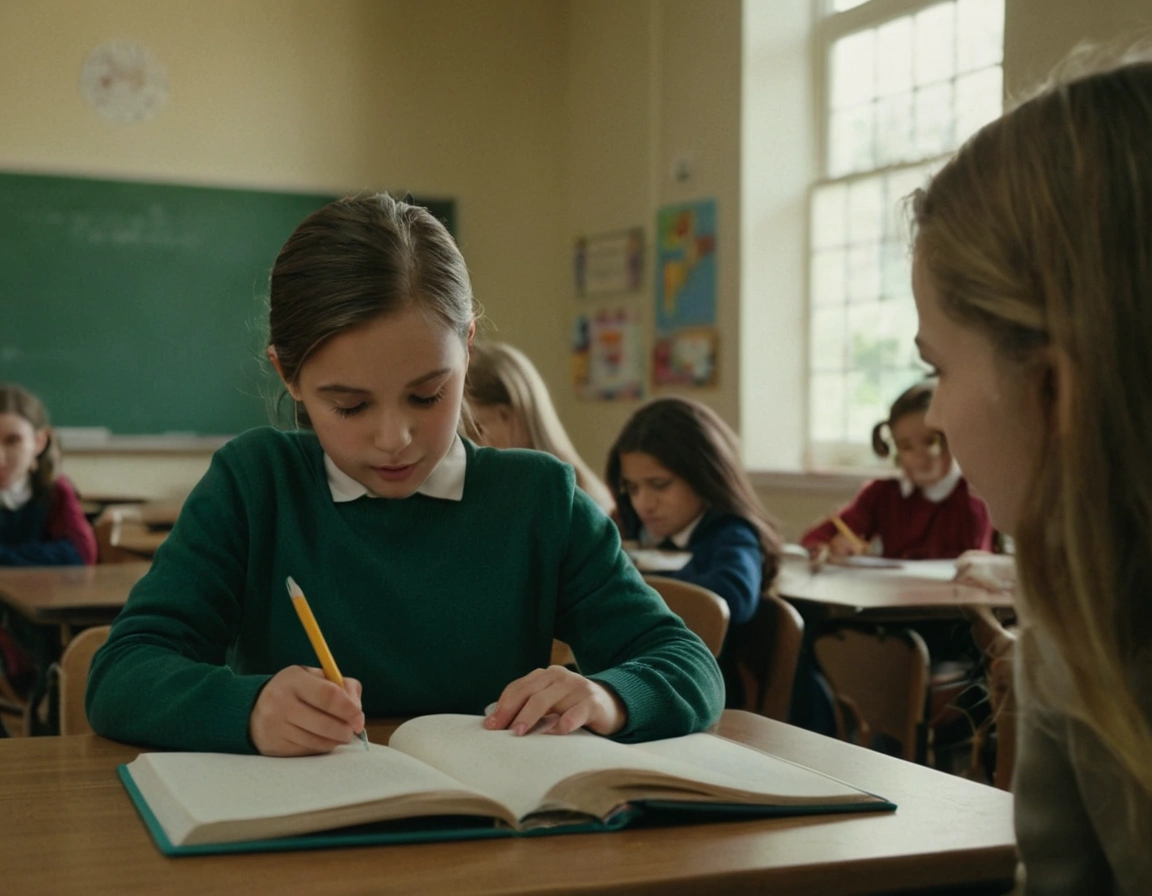Welcome! If you’re a special education teacher working in a private school, you already know how rewarding yet challenging your role can be. With growing numbers of students requiring specialized support, teachers need reliable resources to provide effective, individualized instruction. Special education teachers often face unique demands, from creating inclusive lesson plans to accessing the right tools for each student’s needs.
This article provides a comprehensive guide to the essential resources that can support your work, from practical tools and educational materials to helpful online platforms. By leveraging these resources, you can simplify planning, engage your students more effectively, and make a meaningful impact on their educational journeys. We’ve tailored this guide specifically for special education teachers in private schools, where access to public resources may be limited and unique strategies are often necessary.
Let’s dive into the top resources that can support your teaching, inspire your students, and make your classroom a positive learning environment for everyone.
Understanding the Importance of Specialized Resources
For special education teachers, having the right resources is critical. Specialized resources provide support that can help address the diverse range of learning needs found within a special education classroom. Here’s why these resources are so important:
- Individualized Learning: Many students in special education need personalized lesson plans. With resources like adaptive learning software, teachers can tailor instruction to each student’s pace and level.
- Behavioral and Emotional Support: Behavioral challenges are common in special education classrooms. Resources like behavior charts, reward systems, and sensory tools help create a calm, productive environment.
- Professional Development: Staying updated on best practices is crucial. Resources that provide training and certifications help teachers improve their methods and learn new strategies that make a real difference.
In private schools, access to public special education resources may be limited, making it all the more important to have a toolkit of effective resources tailored for specific learning needs.
Top 10 Essential Resources for Special Education Teachers
1. Adaptive Learning Software
Adaptive learning software, like IXL and Khan Academy, allows students to work at their own pace, adapting to each student’s abilities. These programs provide exercises in various subjects, from math to reading, making them invaluable in special education.
- Benefit: Personalized learning paths help students progress without frustration, and teachers can monitor performance through built-in analytics.
2. Sensory Tools
For students with sensory processing issues, sensory tools like weighted blankets, fidget spinners, and noise-canceling headphones can improve focus and comfort in the classroom. These tools help regulate sensory input and are crucial in managing behavioral responses.
- Benefit: By providing sensory support, teachers can help students feel more comfortable, reducing anxiety and improving concentration.
3. Visual Aids and Communication Boards
Many special education students benefit from visual supports like picture communication boards, which help non-verbal students communicate. Apps such as Proloquo2Go offer a variety of visual aids that assist in language development.
- Benefit: Visual communication aids help bridge the communication gap, making it easier for students to understand instructions and express their needs.
4. Assistive Technology
Tools like text-to-speech software, speech-to-text programs, and screen readers (such as Dragon NaturallySpeaking and JAWS) provide valuable support for students with learning disabilities or visual impairments.
- Benefit: These technologies enable students with disabilities to engage with digital content more easily, making learning more accessible.
5. Classroom Behavior Management Tools
Apps like ClassDojo and PBIS Rewards are effective for managing classroom behavior. These platforms allow teachers to set goals, reward positive behavior, and communicate with parents about progress.
- Benefit: Improved behavior management leads to a more structured classroom, which is essential for students who thrive in routine environments.
6. Professional Development Courses and Certifications
Continuous professional development is vital. Programs like Coursera and the Council for Exceptional Children (CEC) offer courses specifically for special education teachers, covering topics from instructional strategies to legal regulations.
- Benefit: Ongoing training empowers teachers with updated skills and techniques, improving the quality of education they provide.
7. Therapy and Counseling Support
Students in special education often benefit from therapy support, including speech therapy, occupational therapy, and counseling. Collaborating with professionals or using resources like Speech Blubs (for speech therapy exercises) can be valuable.
- Benefit: Therapy resources ensure that students receive the support they need, whether in developing motor skills, managing emotions, or improving communication.
8. Data Collection and Progress Monitoring Tools
Tracking student progress is essential in special education. Tools like EasyCBM and Goalbook make data collection easier, providing insights into each student’s growth and areas needing additional support.
- Benefit: Progress monitoring tools provide the data needed to adjust lesson plans and ensure each student’s learning goals are met.
9. Inclusive Curriculum Resources
An inclusive curriculum helps integrate special education students into mainstream subjects. Websites like Newsela offer leveled reading materials, allowing teachers to select content suited to various reading levels.
- Benefit: Inclusive curriculums create a more integrated classroom environment, promoting engagement and mutual respect among all students.
10. Parent Communication Apps
Effective communication with parents is key to supporting a student’s progress. Apps like Remind and Bloomz allow teachers to send updates, share achievements, and provide feedback, fostering collaboration between school and home.
- Benefit: Regular communication with parents builds trust and ensures everyone is aligned on the student’s learning goals.
Table of Essential Resources for Quick Reference
To make it easier to select the best tools for your classroom, here’s a summary of the top resources:
| Resource Category | Examples | Primary Benefit |
|---|---|---|
| Adaptive Learning Software | IXL, Khan Academy | Personalized learning paths |
| Sensory Tools | Weighted blankets, fidget spinners | Improved focus and comfort |
| Visual Aids | Proloquo2Go | Enhanced communication for non-verbal students |
| Assistive Technology | Dragon NaturallySpeaking, JAWS | Accessibility for students with disabilities |
| Behavior Management Tools | ClassDojo, PBIS Rewards | Structured and positive classroom behavior |
| Professional Development | Coursera, CEC | Updated teaching skills |
| Therapy Resources | Speech Blubs | Additional emotional and speech support |
| Data Collection Tools | EasyCBM, Goalbook | Effective tracking of student progress |
| Inclusive Curriculum | Newsela | Reading materials for all levels |
| Parent Communication | Remind, Bloomz | Improved collaboration with parents |
Overcoming Common Challenges in Special Education with Resources
Special education teachers often face challenges, from time constraints to diverse learning needs. Here’s how some of these resources can help:
- Challenge: Limited Time for Individualized Instruction
- Solution: Adaptive learning software, like IXL, allows students to learn independently while the teacher focuses on providing support to those who need it most.
- Challenge: Managing Different Sensory Needs
- Solution: Sensory tools can be used as needed to keep students focused and comfortable without requiring additional support from the teacher.
- Challenge: Tracking Progress Efficiently
- Solution: Data collection tools like EasyCBM simplify progress tracking, helping teachers quickly analyze data to adjust lesson plans.
- Challenge: Communication with Non-Verbal Students
- Solution: Visual aids and assistive technology like communication boards allow non-verbal students to communicate more effectively, fostering a better learning experience.
By incorporating these resources, special education teachers in private schools can address common challenges more effectively, creating a supportive and adaptable learning environment.
Frequently Asked Questions (FAQs)
1. Do private schools provide resources for special education? While public schools often have established resources for special education, private schools may offer specialized programs or tools on a case-by-case basis. Many private schools do invest in resources that can support special education students, but this varies widely.
2. How can special education teachers find affordable resources? Teachers can explore grant programs, discounts for educators, or online platforms like DonorsChoose, which allows teachers to fundraise for classroom resources. Many educational software companies offer free or discounted versions for educators.
3. Are sensory tools necessary for every special education classroom? Not every special education classroom requires sensory tools, but they can be incredibly beneficial for students with sensory processing needs. Teachers can assess each student’s needs to determine the most appropriate tools.
Conclusion: Supporting Success with the Right Resources
Special education teachers play a vital role in shaping a supportive, inclusive, and effective learning environment. With the right resources, these educators can overcome common challenges, provide individualized support, and promote academic and emotional growth in their students. Whether through adaptive learning software, sensory tools, or ongoing professional development, each resource contributes to a richer educational experience.
For special education teachers in private schools, having a toolkit of essential resources not only eases the teaching process but also ensures that each student can thrive. Investing time in exploring these tools and adapting them to your classroom can make a substantial difference in both your students’ success and your teaching journey.

